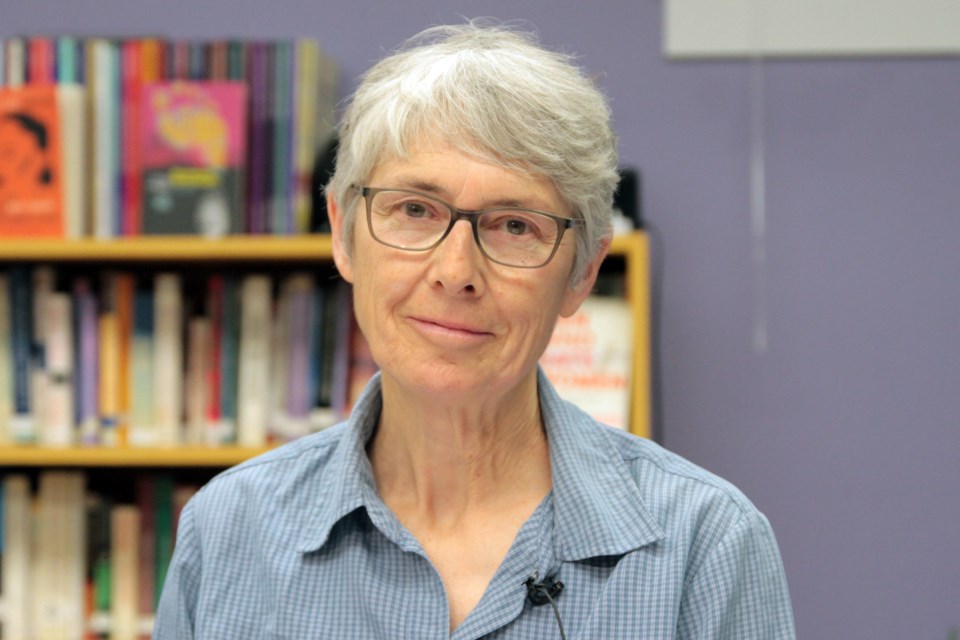THUNDER BAY — Local agencies and service providers say a city declaration that intimate partner and gender-based violence is an epidemic may lead to pressure on governments to take action.
A coalition of local anti-violence groups issued a news release this week, publicly calling on Thunder Bay city council to label those forms of violence as an epidemic.
It's a move that would address the first of 86 recommendations made from a coroner's inquest after a triple-murder of three women in Renfrew County, west of Ottawa, by a former love interest in 2015.
Gwen O'Reilly, the executive director of the Northwestern Ontario Women's Centre and a member of the District Coordinating Committee to End Woman Abuse, said the coordinating committee includes representatives from several sectors, including police, child welfare, women's shelters, and victim services.
"We sit around this table and we talk about these issues every month. There is not a person who sits at that table who does not agree that we are in an emergency. The problem is acute and we are not dealing with it well," O'Reilly said.
"Women are not calling the police because they're afraid that women are not able to leave abusive relationships, children are being impacted and there doesn't seem to be any recourse. We're seeing perpetrators who are using violence, assaulting their partners over and over again, and not receiving particularly any serious sanction. We're seeing perpetrators who are going from one family to another and continuing to use violence. They're serial offenders."
O'Reilly said that while the epidemic declaration would largely be symbolic on the city's part, it could put pressure on senior levels of government to address the other recommendations.
Political will is needed to make change, she added.
"There were many other recommendations that were a system-wide, that looked at collaboration among agencies, law reform changes to court and other processes," she said in an interview on Wednesday.
Maya Mounayer, the coordinator of the Naadmaagewin Indigenous Domestic Violence Coordinating Committee, said that there is an increased need for services. Beendigan, which is an Anishinabe women's and children's emergency abuse shelter, had admissions rise from 309 in 2020/21 to 456 in 2022 to 2023.
Mounayer noted that while admissions and the need for support have increased, funding for those agencies has not. She said if the city were to declare this an epidemic, she hopes it would bring more awareness to the issue of intimate partner and gender-based violence and subsequently bring more funding to those in need.
Information provided by the Northwestern Ontario Women's Centre shows that as of Aug. 1, more than 40 municipalities in Ontario independently supported a declaration elsewhere or declared their own intimate partner violence epidemic, with Toronto being one of the most recent cities to do so.
Data from Statistics Canada shows that the number of reported incidents in Thunder Bay skyrocketed to 2,609 in 2021, after having been slightly above 1,700 per year in both 2020 and 2019, representing a nearly 52 per cent increase.
While in Thunder Bay, resources are limited, including the recent closure of the Sexual Abuse Centre Thunder Bay and the relocation of the partner assault response program to the Thunder Bay Counselling Centre.
O'Reilly said the city's two women's shelters are always at full capacity, and there is no local facility exclusively for women experiencing homelessness.
Partners from the Thunder Bay and District Coordinating Committee to End Woman Abuse and the Naadmaagewin Indigenous Domestic Violence Coordinating Committee, will be making a deputation to City Council on Sept. 25, asking that intimate partner and gender-based violence be declared an epidemic in the City of Thunder Bay.
If you or someone you know is in need of assistance regarding intimate partner violence, there are many agencies in Thunder Bay that can help. Beendigan can provide temporary shelter for Indigenous women and their children. As well, Faye Peterson House is a shelter for survivors/ women and children who have left or leaving abusive situations.
